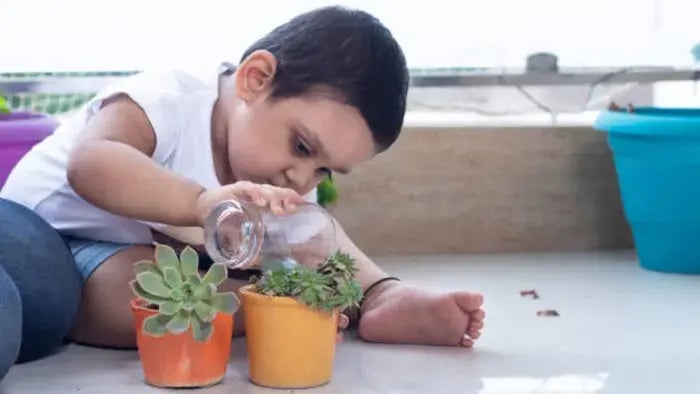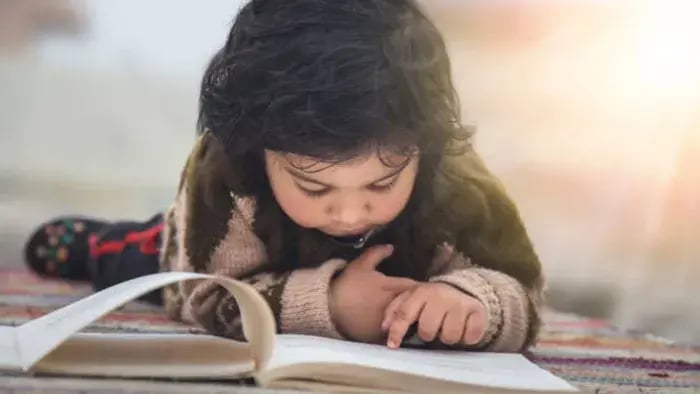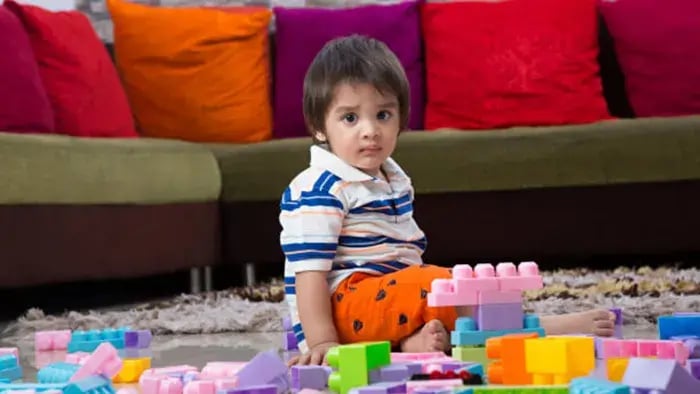- Brain Growth Is Fast
- Language Development Begins Long Before Talking
- Social-Emotional Learning Starts in the Early Years
- Play Is Not a Break, It Is Learning
- Every Child Develops at Their Own Pace
- Routines and Repetition Build Confidence
- Positive Relationships Shape Long-Term Development
Introduction

The early years of a child’s life are full of tiny but mighty changes. From the first words they say to the first time they play with others, every small moment shapes how they think, feel, and relate to the world. Knowing this helps you respond to your child better, whether you’re a parent at home or a teacher in a classroom.
Early childhood learning is about building emotional safety, forming good habits and learning to explore the world with confidence. During this time children are super sensitive to their environment, what they see, hear, and feel deeply affects how they grow.
Knowing what to expect at each stage helps you notice not just milestones but also the small signs a child might need more support. It reminds you to slow down and enjoy the wonder of each new word, step, and question.
7 Key Aspects Every Parent And Teacher Should Know About Early Childhood Development

Early childhood is a time of rapid and deep transformation. A child’s brain develops faster in these first few years than at any other stage of life, shaping the way they learn, think, feel, and connect with others. As a parent or teacher, understanding what’s happening beneath the surface helps you respond with more empathy, support, and purpose. The more you know about early development, the easier it becomes to offer the right support at the right time.
Brain Growth Is Fast
According to UNICEF, the early years are when the brain builds millions of new connections every second. These connections form through touch, talk, movement, and play. Positive experiences, like being read to, hugged, or encouraged, help build strong neural pathways. Stress, neglect, or lack of stimulation can delay or weaken them.
Language Development Begins Long Before Talking
According to a study published in Philos Trans R Soc Lond B Biol Sci. 2009, even before children say their first word, they’re already learning language. They start by listening, watching facial expressions, and noticing patterns in how people speak. When you respond to their coos or name objects in their environment, it helps them link sounds to meaning. Talk to your child regularly, even if they’re too young to reply. This back-and-forth builds vocabulary, memory, and confidence with communication.
Social-Emotional Learning Starts in the Early Years
As per a study published in Eur J Dev Psychol. 2019, children begin to understand emotions, both their own and others’, from a very young age. They watch how adults react to frustration, how comfort is given, and how others are treated. These early cues become the foundation for empathy, kindness, and self-regulation. Help children name their feelings: happy, sad, frustrated, or excited. This builds emotional vocabulary and helps them handle big feelings better.
Play Is Not a Break, It Is Learning
To an adult, play might look simple. But to a child, it’s their main way of understanding the world. As per a study done by UNICEF, through play, children test ideas, take risks, solve problems, and explore imagination. Whether it’s building with blocks or pretending to be a chef, they’re constantly learning. Unstructured play allows creativity to bloom, while guided play can teach focus, cooperation, and communication.
Every Child Develops at Their Own Pace
According to a study published in, Treasure Island 2025, while development follows general patterns, each child grows in their own time. Some speak early, others walk later. What matters is a consistent, loving environment where they feel safe to grow at their own speed. Avoid comparing children, even siblings. Instead, celebrate progress, however small, and stay aware of patterns that may need closer attention.
Routines and Repetition Build Confidence
Research conducted by UNICEF, young children thrive on routines, repeating daily tasks, like brushing teeth, reading a bedtime story, or packing a school bag, gives them a sense of structure and security. It helps them predict what’s coming next, which reduces anxiety and builds independence. Repetition also strengthens learning. Reading the same book or singing the same song helps their brain recognise patterns and language.
Positive Relationships Shape Long-Term Development
As per a study published in, Eur J Dev Psychol. 2019, the relationship between a child and their caregivers is one of the most important factors in early development. When children feel safe, heard, and valued, they’re more open to learning and exploring. A strong emotional bond builds trust, resilience, and a healthy sense of self.
Conclusion

Early childhood is the foundation of everything that follows. From brain development and language to emotions and social skills, these first few years set the tone for lifelong learning and behavior. As a parent or teacher, your presence, responses, and encouragement make all the difference. When you understand what’s happening beneath the surface, you’re better equipped to nurture growth with intention, joy, and care.
Her love for storytelling began with reading her grandfather’s speeches, where Tarishi saw the power of words in creating lasting memories. Combining her passions for food and writing, she has turned her life into a fulfilling path of sharing stories that celebrate flavours and how food brings communities together.
The views expressed are that of the expert alone.
The information provided in this content is for informational purposes only and should not be considered a substitute for professional medical advice, diagnosis, or treatment. Always seek the advice of your physician or another qualified healthcare provider before making any significant changes to your diet, exercise, or medication routines.
References
https://www.unicef.org/india/what-we-do/early-childhood-development
https://www.ncbi.nlm.nih.gov/books/NBK534827/
https://www.unicef.org/sites/default/files/2018-12/UNICEF-Lego-Foundation-Learning-through-Play.pdf
https://pmc.ncbi.nlm.nih.gov/articles/PMC6424503/
















